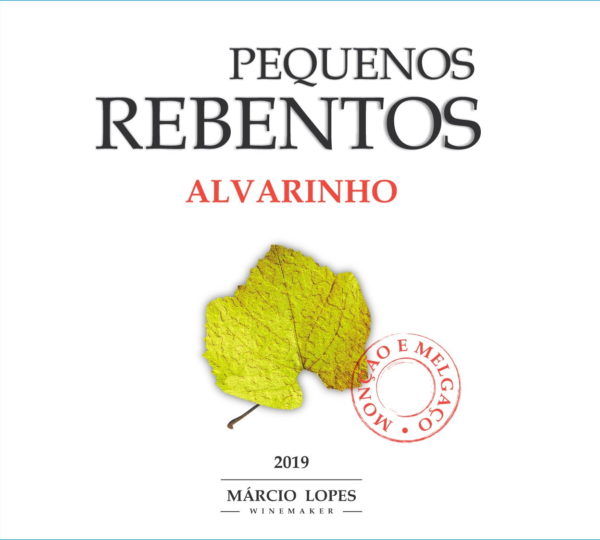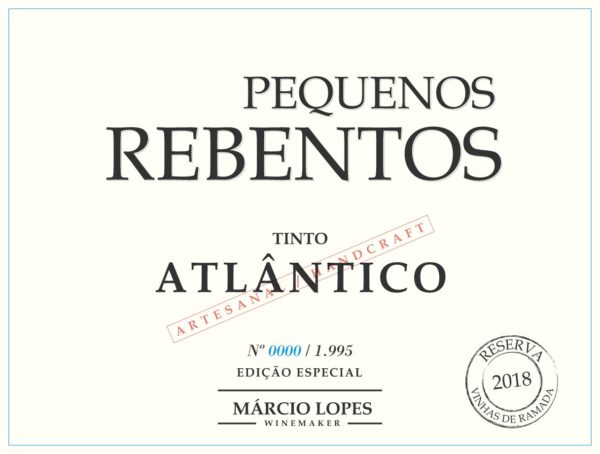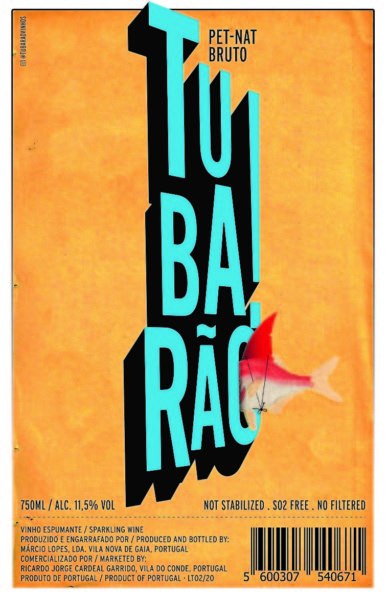Marcio Lopes
Wines
Pequenos Rebentos Alvarinho
Varietal: Alvarinho
Color: White
Farming Practice: Sustainable
Sustainable. 100% Alvarinho. Grown in the sub-region of Mancao and Melgaco, the vines are planted on granite soils at 300-400 meters above sea level. Hand-harvest and de-stemmed. Short skin contact for 8 hours followed by a gentle pressing. Slow natural fermentation for 15 days in small vat tanks, and aged on less with battonage for 5 months. 800 cases produced.
Pequenos Rebentos Tinto Atlantico
Varietal: Cainho Tinto, Pedral e Alvarelhao
Color: Red
Farming Practice: Certified Organic
Certified Organic. 80% Cainho Tinto, Pedral e Alvarelhao, and 20% other rare varieties. The vineyard is located in Barcelos and is made up from old, rare Portuguese varieties. The soils are largely granitic, which yield grapes with high natural acidity. The vines are 80 years old and are grown using Ramadas, a traditional trellising system. Hand-harvested, de-stemmed, and left to macerate on skins for 24 hours. After fermentation begins from indigenous yeast, the fruit is pressed and transferred to old barrels to complete. The wine undergoes malolactic fermentation and spends 8 months aging on lees in old barrels. No filtration, clarification, or stabilization. 150 cases produced.
Tubarao! Rose Pet Nat
Varietal: Loureiro, Trajadura, Vinhão and others (unknown)
Color: Rose Sparkling
Farming Practice: Organic
Organic. A field blend of Loureiro (over 50%) with the balance being Trajadura, Vinhão and others (unknown). Sandy soils, old vines (average 40 years old) from sites between Póvoa de Varzim and Esposende on the Atlantic coast in northern Portugal near the Spanish border. All grapes (both reds and whites) are hand-harvested simultaneously and immediately whole cluster pressed together. The juice is then racked to temp controlled stainless steel where it ferments and is bottled just before the end of fermentation. Undisgorged. No stabilization, filtration, or SO2. What is most remarkable about this wine is the sites on which the grapes grow. One of Tubarao’s goals is to protect the nearly extinct forms of viticulture in Portugal, and the “masseira” is one such form of farming. Masseira were first created by Benedictine monks in northern Portugal near the Atlanic in the 18th century. Large, rectangular pits with sloped sides were dug into the sandy dunes near the ocean. This is polyculture with many different crops growing next to each other. Vines are grown on the sloped sides (“valos”) to help protect from the wind and various fruits and grains are grown on the floor of the masseira. The lower elevation of the floor works has a warmed microclimate that works almost like a greenhouse. Very few masseira are left and the culture of farming this way is in danger of disappearing forever in the next generation without producers like Tubarao who financially support these growers and encourage them to continue this tradition. 150 cases made.








